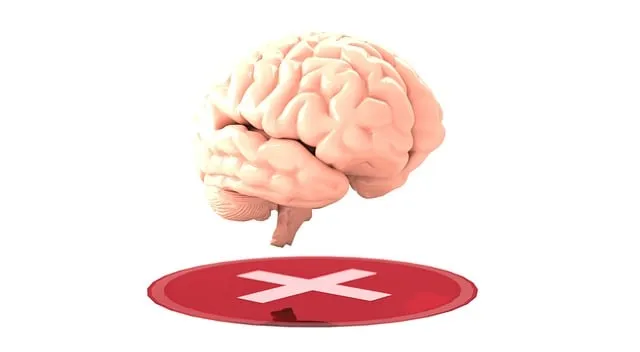Mental wellness journaling, recognized as a powerful tool by the Kaiser Permanente Mental Health Access Center in Longmont, is an effective way to track emotional journeys, identify triggers, and boost overall well-being. By documenting thoughts and feelings regularly, individuals gain valuable insights, develop emotional regulation skills, and enhance stress management. Consistency and creative exercises like prompts from their podcast series or mood maps are key; these practices foster self-expression, reduce mental illness stigma through open dialogue, and ultimately support emotional intelligence and resilience.
“Unwind your mind and unlock your emotional well-being with the transformative power of Mental Wellness Journaling. This comprehensive guide, inspired by the expertise of Kaiser Permanente’s Mental Health Access Center in Longmont, explores how this simple yet effective practice can significantly enhance your mental health journey.
From understanding its impact to practical setup tips and engaging exercises, we delve into the art of journaling as a powerful tool for self-reflection and emotional regulation.”
- Understanding Mental Wellness Journaling: A Personal Journey
- The Benefits of Journaling for Your Mind and Mood
- Setting Up Your Journal: Tools and Tips from Kaiser Permanente Longmont
- Engaging with Your Journal: Exercises and Ideas to Stay Consistent
Understanding Mental Wellness Journaling: A Personal Journey

Mental wellness journaling is a powerful tool for self-reflection and personal growth, offering individuals a chance to track their emotional journeys and gain valuable insights. It involves regularly documenting thoughts, feelings, experiences, and reflections in a private and creative space. Many find it similar to keeping a diary or a logbook, but with a focus on mental well-being. This practice can be especially beneficial for those seeking to improve their emotional intelligence and enhance their overall mental health, as evidenced by the resources available at the Kaiser Permanente Mental Health Access Center Longmont.
By jotting down daily experiences, individuals can identify patterns, triggers, or stressors that impact their mental wellness. It provides a safe space to express emotions freely, whether it’s joy, anxiety, or even frustration. This act of writing can be a confidence-boosting practice, allowing one to confront and manage stress more effectively. Moreover, regular journaling can help individuals develop better emotional regulation skills, which are essential for navigating life’s challenges and fostering overall resilience.
The Benefits of Journaling for Your Mind and Mood

Journaling has emerged as a powerful tool for enhancing mental wellness, offering a safe and personal space to explore thoughts and emotions. For individuals seeking support from resources like the Kaiser Permanente Mental Health Access Center in Longmont, this practice can be particularly beneficial. By putting pen to paper, or fingers to keyboard, people can gain valuable insights into their minds and moods. This introspective process allows individuals to identify patterns, process experiences, and gain a deeper understanding of themselves.
Regular journaling promotes emotional intelligence by encouraging self-awareness and reflection. It provides an opportunity to communicate with oneself, fostering open dialogue about complex feelings and thoughts. Similar to the strategic conversations facilitated through Mental Health Policy Analysis and Advocacy, journaling enables individuals to articulate their mental health experiences, potentially leading to improved coping mechanisms and enhanced overall well-being. This simple yet effective exercise can be a game-changer for those looking to navigate and optimize their mental health journey.
Setting Up Your Journal: Tools and Tips from Kaiser Permanente Longmont

Setting up your mental wellness journal is a powerful first step towards prioritizing your emotional well-being. Kaiser Permanente Longmont’s Mental Health Access Center recommends starting with a dedicated space and tools that feel right for you. Choose a quiet area free from distractions, where you can reflect in peace. Your journal doesn’t need to be fancy; a simple notebook or even a digital document will do. The key is consistency. Aim to write regularly, whether it’s daily, every other day, or a few times a week.
Consider incorporating communication strategies and emotional regulation techniques into your journaling practice. You can jot down thoughts and feelings, track moods, and identify patterns in your emotional responses. Kaiser Permanente Longmont also suggests using prompts from their Mental Wellness Podcast Series Production to spark meaningful reflections. For instance, reflect on what brought you joy today or write a letter to yourself offering compassion and understanding during challenging times.
Engaging with Your Journal: Exercises and Ideas to Stay Consistent

Staying consistent with your mental wellness journal can feel like a challenging task at times, but it’s an essential practice to enhance emotional well-being promotion techniques. The Kaiser Permanente Mental Health Access Center Longmont offers valuable resources and support for those looking to integrate this habit into their self-care routines. To keep your journaling journey engaging, consider incorporating diverse exercises tailored to your needs. For instance, free-writing prompts can help you process daily experiences and emotions; reflecting on achievements or celebrating small victories is another powerful approach.
Diversifying your journaling experience with creative ideas can make it more enjoyable. Draw a mood map to visualize your emotional landscape, or create a collage representing your current mindset. These activities not only encourage self-expression but also serve as potent trauma support services by providing safe spaces for exploration. Remember, mental illness stigma reduction efforts often begin with open dialogue, and journaling offers a private, non-judgmental arena to explore thoughts and feelings openly.
Mental wellness journaling is a powerful tool accessible to everyone, as evidenced by the practices at Kaiser Permanente’s Mental Health Access Center in Longmont. By incorporating this reflective practice into your routine, you can significantly improve your mental well-being and mood. The exercises provided offer a framework for self-exploration, allowing you to track thoughts, emotions, and experiences. Whether it’s writing about daily struggles or celebrating achievements, journaling enables consistent engagement with your inner world. Embrace the benefits of this simple yet effective practice and start your journey towards enhanced mental wellness today.






